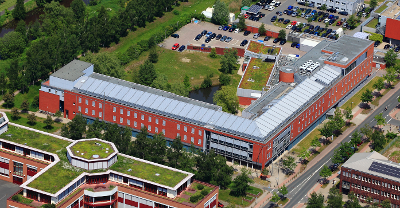← students

| First name: | Julia |
| Last name: | Rosa de Rezende |
| Country: | Brazil |

Thesis Subject:Thermophilic spore-forming sulfate-reducing bacteria in cold marine sediments
This project focuses on the presence of thermophilic spore-forming
sulfate-reducing bacteria in cold marine sediments. Their identity, activity,
abundance and distribution are questions that motivate this work.
It will focus on the Wadden Sea, the Polar Sea (Svalbard, Greenland and
Siberia), Kattegat Sea, North Atlantic, Pacific Ocean, and the Gulf of
California, to survey the distribution of thermophiles and evaluate their
potential sources.
High-temperature incubations with radioactive sulfate tracer and
monitoring of substrate concentrations will be used to investigate the
activity of thermophilic sulfate reducers. Molecular methods will be
employed to identify and quantify the target organisms.
Analyzing the distribution of thermophilic spores may prove useful for
studying the biogeography of marine microorganisms. Analyzing their
activity, identity and abundance will provide insight into their potential
roles in the deep biosphere, Earths largest and most unexplored
environment.
This project focuses on the presence of thermophilic spore-forming
sulfate-reducing bacteria in cold marine sediments. Their identity, activity,
abundance and distribution are questions that motivate this work.
It will focus on the Wadden Sea, the Polar Sea (Svalbard, Greenland and
Siberia), Kattegat Sea, North Atlantic, Pacific Ocean, and the Gulf of
California, to survey the distribution of thermophiles and evaluate their
potential sources.
High-temperature incubations with radioactive sulfate tracer and
monitoring of substrate concentrations will be used to investigate the
activity of thermophilic sulfate reducers. Molecular methods will be
employed to identify and quantify the target organisms.
Analyzing the distribution of thermophilic spores may prove useful for
studying the biogeography of marine microorganisms. Analyzing their
activity, identity and abundance will provide insight into their potential
roles in the deep biosphere, Earths largest and most unexplored
environment.


